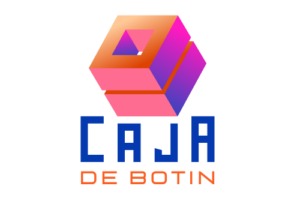The evolution of poker from a physical card game to an online sensation is an interesting tale.
It is a transformation story that has seen poker transcend traditional boundaries and permeate digital spaces, all the while maintaining its quintessential appeal.
This article delves into this fascinating transition, exploring its origins, impact, and future prospects.
The Genesis of Online Poker
The origins of online poker can be traced back to the late 20th century, specifically the 1990s. The rise of the Internet and advancements in technology created a fertile ground for the game’s digital debut.
The development of secure online payment systems played a crucial role in making this possible, enabling players to participate in cash games from the comfort of their homes.
The First Poker Platforms
The inaugural platforms for online poker were rudimentary compared to today’s sophisticated sites.
Planet Poker, launched in 1998, is widely regarded as the pioneer of platforms to play poker games online.
Despite its primitive interface and limited features, Planet Poker’s success was indicative of the enormous potential of online poker.
The Growth and Popularity
In the early 2000s, the popularity of online poker exploded. New platforms emerged, offering better user experiences, a variety of games, and attractive promotions.
This period also saw the emergence of celebrities, many of whom had honed their skills online.
The surge in popularity was further amplified by the advent of live poker tournaments broadcasted on television, which showcased the thrill and strategic depth of the game.
The Role of Technology

Technology has been a key driver in the proliferation of online poker. Innovations in gaming software have allowed for multi-table play, player statistics tracking, and more immersive interfaces.
Furthermore, the proliferation of smartphones and mobile apps has made online poker accessible anywhere and at any time, further propelling its popularity.
The Impact of Online Poker
Online poker has undeniably revolutionized the game. It has democratized poker, making it accessible to anyone with an internet connection, irrespective of geographical location.
It has also contributed to the global poker community, fostering interactions among players from different cultures and backgrounds.
Economic Implications
The economic impact of online poker is substantial. It has created a booming industry, generating billions in revenue annually.
This economic activity has also translated into job creation, ranging from software developers to customer service representatives.
Additionally, it has opened up new avenues for revenue generation, such as training and strategy content.
The Future

Despite its impressive growth, online poker is far from reaching its zenith. Emerging technologies like virtual and augmented reality promise to make the online poker experience even more immersive and realistic.
The integration of artificial intelligence could lead to more personalized gaming experiences, tailoring games to individual skill levels and preferences.
Regulatory Challenges and Opportunities
The future of online poker is not without challenges. Regulatory issues, particularly regarding gambling legislation, remain a concern.
However, these challenges also present opportunities. Clear and comprehensive regulations can ensure fair play, protect consumers, and promote responsible gambling, contributing to the long-term sustainability of the industry.
The Influence of Online Poker on Player Skills and Strategies
The transition of poker to the online realm has had a profound impact on player skills and strategies.
Online platforms provide an environment for rapid play, allowing players to accumulate experience at an accelerated pace compared to traditional live games.
Moreover, the anonymity of online play has led to a shift in player behavior and strategies.
Learning and Adaptation in the Online Environment
Online platforms often offer features that facilitate learning and strategy development. Players can easily track their game history, analyze their performance, and identify areas for improvement.
Some platforms also provide educational resources, such as tutorials and strategy guides. The online environment, thus, fosters a culture of continual learning and adaptation.
Community Building

The impact of online poker extends beyond individual players and the industry itself. It has played a pivotal role in building and nurturing a global community of poker enthusiasts.
Online platforms serve as hubs where players can interact, share strategies, and participate in forums. They also host online tournaments that foster a sense of camaraderie and competitive spirit among players.
Building Bridges Across Borders
Online poker has, in essence, globalized the game. It has built bridges across geographical and cultural divides, bringing together players from all corners of the globe.
Players can compete with others from different countries, fostering intercultural interactions and mutual understanding.
This sense of global community and camaraderie is arguably one of the most significant contributions of online poker.
Professional Players

The advent of online poker has not only transformed the way people play the game but has also given rise to a new breed of professional poker players who have excelled in the online realm.
These players have made a name for themselves through their exceptional skills, strategic thinking, and ability to navigate the virtual landscape. Here, we delve into the world of professional players in the online realm, highlighting their unique characteristics and achievements.
Rise of Pros
With this game offering accessibility and convenience, many talented players have embraced the virtual platform to showcase their skills.
Online poker has leveled the playing field, allowing players from different parts of the world to compete against each other without geographical limitations.
As a result, a new generation of professional players has emerged, leveraging the online medium to hone their craft and build successful careers.
Adaptability and Multitasking

Professional poker players possess a distinct set of skills that sets them apart from their offline counterparts.
They excel in adapting to the fast-paced nature of games, making quick decisions within strict time limits.
Moreover, they are adept at multitasking, managing multiple tables simultaneously, and maximizing their profits through volume play.
Analytical Approach and Game Selection
In the online realm, where player pools are vast, professional players employ a highly analytical approach to game selection.
They carefully assess variables such as game format, stakes, player skill levels, and table dynamics to maximize their edge.
They understand the importance of selecting the right games that align with their strengths and preferences to optimize their profitability.
Conclusion
The journey of poker from the physical to the digital realm is a testament to the adaptability of the game and its enduring appeal. Online poker has not only survived but thrived, enriching the game, expanding its reach, and creating a thriving industry.
As we look towards the future, one thing is clear – the evolution of poker is an ongoing process, and its transition to the online platform is merely one chapter in its storied history.




